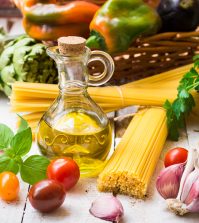- Make It Yourself Lavender Heart-Shaped Bath Bombs!
- 20 Things You Never Knew About “Down There”
- 12 Best Foods For Those Suffering From Arthritis Pain
- 12 Personal Hygiene Mistakes Almost Everyone Makes (Mom Never Told You About #4!)
- 15 Medicinal Plants And Herbs From The Cherokee People
- 12 Mind-Blowing Benefits Of Drinking Coconut Water During Pregnancy
- 12 Outstanding Winter Foods That Won’t Fatten You Up Like A Christmas Turkey
13 Vitamins Every Woman Needs (#9 Is So Hard To Get!)
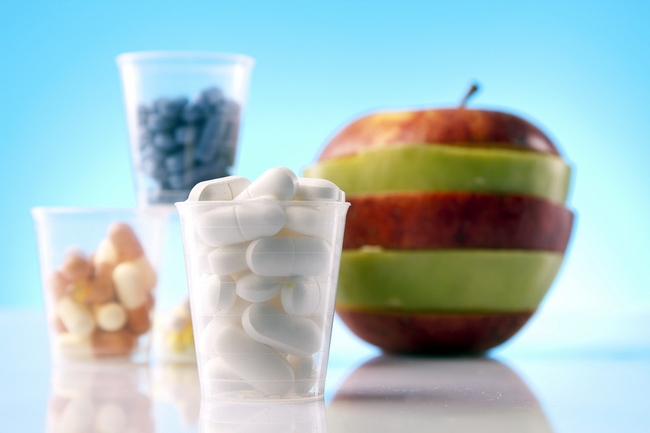
Photo credit: bigstock.com
Modern day women are much more interested in eating a healthier diet and getting regular exercise than their grandmothers were. But did you know that a healthy diet, even a completely organic one, can give you all the necessary vitamins and minerals that today’s women need for their more active lifestyles?
For the body to function properly, women need vitamins, which are organic compounds. Each vitamin and mineral performs specific function(s) in the body. A deficiency in any one of them can cause you to feel tired, sick, weak, and unable to concentrate. Severe deficiencies can even lead to serious health consequences.
Most modern day vitamins are synthetic in nature, so you should look for vitamin and mineral supplements that come from more natural sources as much as possible. Multi-vitamins, although they sound great, are almost always completely synthetic.
Although it is best to get your vitamins and minerals from the foods you eat, with our depleted soils, it is nearly impossible to do so. It is also difficult to tell if you have consumed sufficient amounts of vitamins and minerals in your foods.
The following is a list of the top 13 vitamins and minerals that every adult woman needs every single day. Keep reading and find out which of these you should consuming each day and why.
1. Calcium
Calcium is vital for keeping our teeth and bones strong and healthy. Calcium is also important for sending messages throughout the nervous system, helps the blood vessels and muscles contract as well as for the secretion of hormones. As women age, their bones can become less dense and thinner, especially after menopause. This is why it is vital that women get plenty of calcium. You can grow new bones at every age so even if your doctor has told you that your bones are less dense than they were in the past, you can still grow new bones. Calcium is your absolute best defense against bone loss. Take a calcium supplement (but not to excess as it can lead to the formation of kidney stones) or eat plenty of dairy products, dark green leafy vegetables, such as kale, broccoli, and spinach, and almonds.
Continue to Page 2
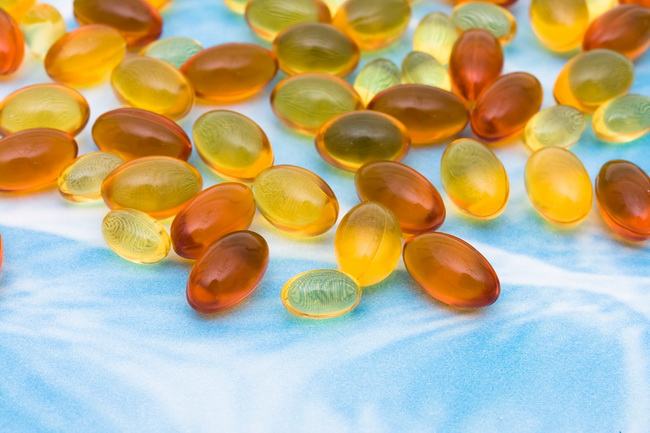
Photo credit: bigstock.com
2. Vitamin A
Vitamin A is a fat soluble vitamin, which means that your body will store some of it in your fatty tissues. This means that it is easier to overdose on vitamin A, so you don’t want to overdo it but women of all ages need vitamin A for the building of strong teeth, skin, bones, and mucous membranes. This vitamin reduces your risk of developing chronic illnesses, slows the aging process, improves the immune system and supports healthy eyesight. Take a vitamin A supplement according to directions. To avoid overdose, you might want to take one day off per week from consuming a supplement. You can also eat more foods that are rich in this important vitamin like watermelon, tomatoes, carrots, red bell peppers, eggs, liver, milk, cantaloupe, pumpkins, broccoli, peaches, and guava.
3. Iron
Iron carries oxygen within the body, supports a healthy immune function, cognitive development, the production of red blood cells, and regulation of the body’s temperature. Women are especially prone to being iron deficient once they begin menstruation. Slacking on iron can cause your body to cut back on the production of red blood cells, which causes anemia. Anemia can lead to unrelenting feelings of fatigue and weakness, even shortness of breath while doing things that aren’t at all strenuous. Anemia causes many women to feel cold most of the time.
A lack of iron will also weaken the immune system, leaving you vulnerable to all sorts of creepy crawlies. Eat plenty of iron rich foods such as dark green leafy vegetables, lean red meat, fish, beans, turkey, and chicken. If you tend to have very heavy periods, you might want to consider taking a ferrous sulfate iron supplement. This kind of supplement is the easiest type for your body to absorb. Don’t overdo the iron, however, as iron-rich foods cause constipation.
4. Vitamin B2
Also known as riboflavin, B2 is essential for proper metabolism function and normal growth. A properly functioning metabolism will improve energy levels and strengthens the immune system. Vitamin B2 has also been shown to be important to the central nervous system, reducing those tingling or numb feelings in the extremities. It also helps the body deal with stress and anxiety. A riboflavin deficiency will result in sore throats, mouth sores, dry, cracked lips, dry hair, pale eyes and tongue, wrinkles and itchy skin. Eat foods rich in vitamin B2 such as eggs, cereals, yeast, milk, cheese, leafy vegetables, almonds, mushrooms, and whole grains.
Continue to Page 3
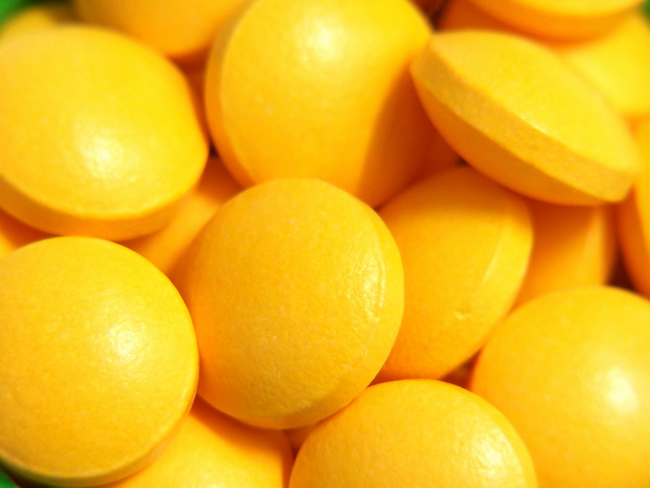
Photo credit: bigstock.com
5. Vitamin K
The vitamin no one thinks about but is oh so important! Vitamin K is important for normal blood clotting, reducing the risk of heart disease and strengthening bones. This vitamin is also important for the immune system function and energy levels. Some great food sources of vitamin K are green leafy vegetables, soybean oil (be sure it’s not GMO), fish oil, and whole grains.
6. Vitamin B6
Also called pyridoxine, B6 helps the body produce hormones, brain chemicals, and supports a healthy immune function. This will help stop depression, memory loss, and heart disease. B6 can also regulate blood sugar levels in the body. This vitamin is especially important for pregnant women as it can help stop morning sickness. Like iron, a deficiency in vitamin B6 can lead to anemia. For foods that contain B6 are avocados, bananas, meat, fish, nuts, seeds, dried fruits, and oatmeal.
7. Vitamin E
Vitamin E is the super anti-aging vitamin, which slows down age-related changes and fights cellular damage. This vitamin can help to prevent heart disease, memory loss, cataracts, and even certain types of cancer! Vitamin E is essential for beautiful hair and skin, which is why you see it advertised in so many skin and hair products. Take a vitamin E supplement according to directions and eat more vitamin E rich foods such as almonds, wheat germ, sunflower seeds, peanut butter, cod liver oil, hazel nuts, and safflower oil.
Continue to Page 4
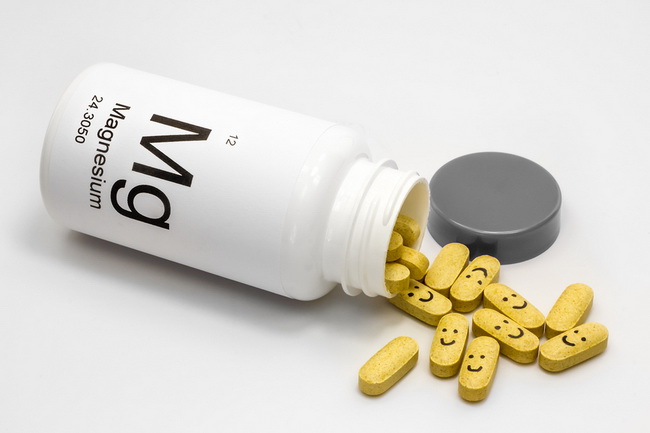
Photo credit: bigstock.com
8. Vitamin B7
If you are looking for a supplement, you will probably see this one listed as biotin. B7 is necessary for the synthesis of fatty acids as well as proper cell growth. Biotin keeps your hair and skin healthy and your sweat glands working properly. In fact, if you suffer from brittle hair or nails, this is the vitamin you want to take more of. B7 is necessary for the regulation of healthy cholesterol levels, the production of bone marrow, and bone growth. A deficiency in this vitamin is quite rare as it is found in many foods but when it does happen it causes skin rashes, brittle hair, anemia, mild depression, and abnormal heart function. Take a supplement as directed and at more foods that are rich in this important vitamin such as nuts, milk, brown rice, eggs, green leafy vegetables, yellow colored fruits, carrots, sweet potatoes, fish, and oatmeal.
9. Magnesium
Magnesium supports normal nerve function, keeps the heart rhythm steady, supports normal muscle function, keeps your bones strong, regulates blood sugar levels, encourages normal blood pressure levels, supports a healthy immune function and can even prevent heart disease, hypertension, and diabetes. It is also known that it is involved in the synthesis of protein and energy metabolism. This one little mineral is necessary for more than 300 biochemical function in the body that science knows of, so you certainly do not want to be deficient in magnesium!
Unfortunately, we used to get plenty of magnesium through vegetables but we have seriously depleted soils nowadays. Almost every woman in America is deficient in magnesium. Deficiencies can lead to migraine headaches, episodes of vomiting, and diarrhea. If you suffer from any type of digestive problem, such as Crohn’s disease, then you are at an even higher risk of being deficient in magnesium. Magnesium supplements are difficult for the body to absorb, so your best bet here is to make your own magnesium oils or lotions and/or soak in Epsom salt baths three times each week.
10. Vitamin D
Like vitamin A, this is also a fat soluble vitamin but it is almost impossible to get too much of this important vitamin. Without vitamin D, your body cannot make use of the calcium you consume, so it works together with calcium to keep bones and teeth strong. Vitamin D is known to reduce the risk of MS, rheumatoid arthritis, and even certain types of cancer. This vitamin acts something like a hormone in the body, so it is great for reducing pre-menstrual symptoms. For most light-skinned people, simply getting 10 to 20 minutes of sunlight each day (minus the sunscreen, ladies) is enough for the body to make sufficient amounts of this vitamin. Since it is stored in the fat tissues, if you hit a rainy patch, your body has stored some vitamin D, so don’t worry. Eat more vitamin D rich foods like milk, liver, eggs, and fatty fish such as salmon and anchovies.
Continue to Page 5
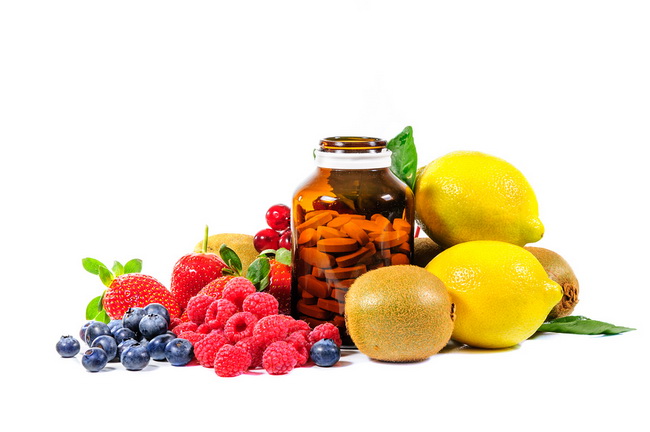
Photo credit: bigstock.com
11. Vitamin B9
Also known as folic acid, B9 is essential for every woman on the plant as it prevents heart disease, hypertension, cancer, memory loss, and Alzheimer’s disease. Folic acid improves fertility, fetal development, cellular function, and overall brain health. If you are pregnant, this vitamin is super important as it prevents birth defects, such as spina bifida, in your developing baby. Take a supplement according to directions and include more foods rich in this vitamin into your daily diet such as oranges, melons, strawberries, beans, eggs, legumes, and asparagus.
SEE ALSO: 12 Proven Natural Remedies to Lighten Dark Underarms (#4 is Super Easy!)
12. Vitamin C
Think of vitamin C as Mother Nature’s immunity booster! Vitamin C speeds the healing process, reduces the risk of heart disease, tissue damage, and encourages the growth of new tissues in the body. It is also important for the formation of red blood cells. Take supplements according to direction and eat more vitamin C rich foods such as strawberries, tomatoes, peppers, citrus fruits, broccoli, potatoes, and kiwi fruit.
13. Vitamin B12
This is another essential vitamin for every woman alive. This vitamin is important for normal cell division, the synthesis of protein, and proper metabolism. B12 is responsible for the prevention of memory loss, heart disease, and fighting anemia. Some people call B12 the “anti-crazy” vitamin because a deficiency in this vitamin can lead to depression, irritability, even hallucinations and confusion. Your body does not need much of this vitamin, but it is absolutely vital to your health. Some of the best food sources are cheese, milk, yogurt, eggs, fish, and meat.
You might have noticed that many of the B vitamins are on this list. Since B vitamins work best in combination with one another, you should consider taking what is called a B complex supplement, which contains all the B vitamins.
References:




